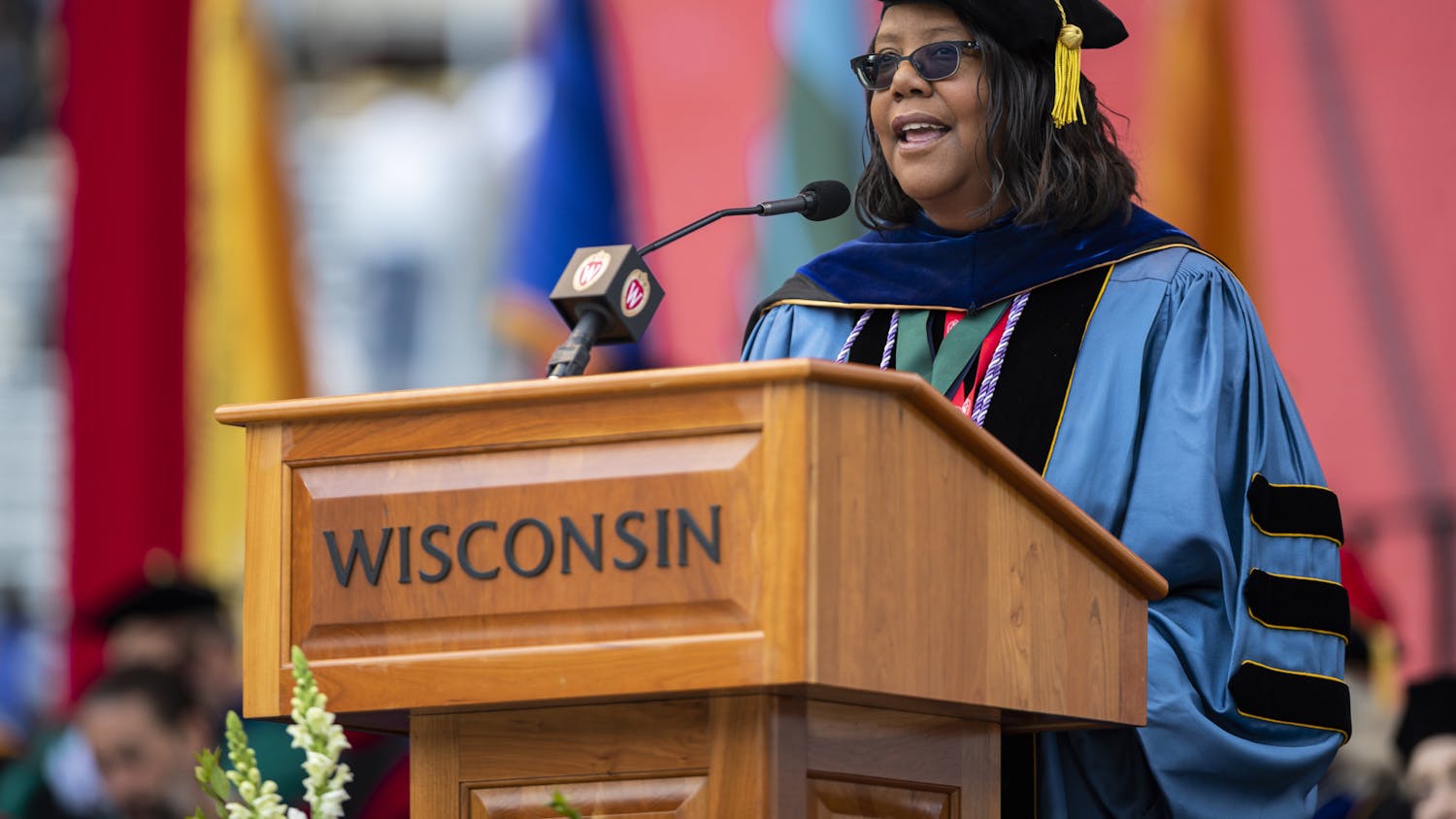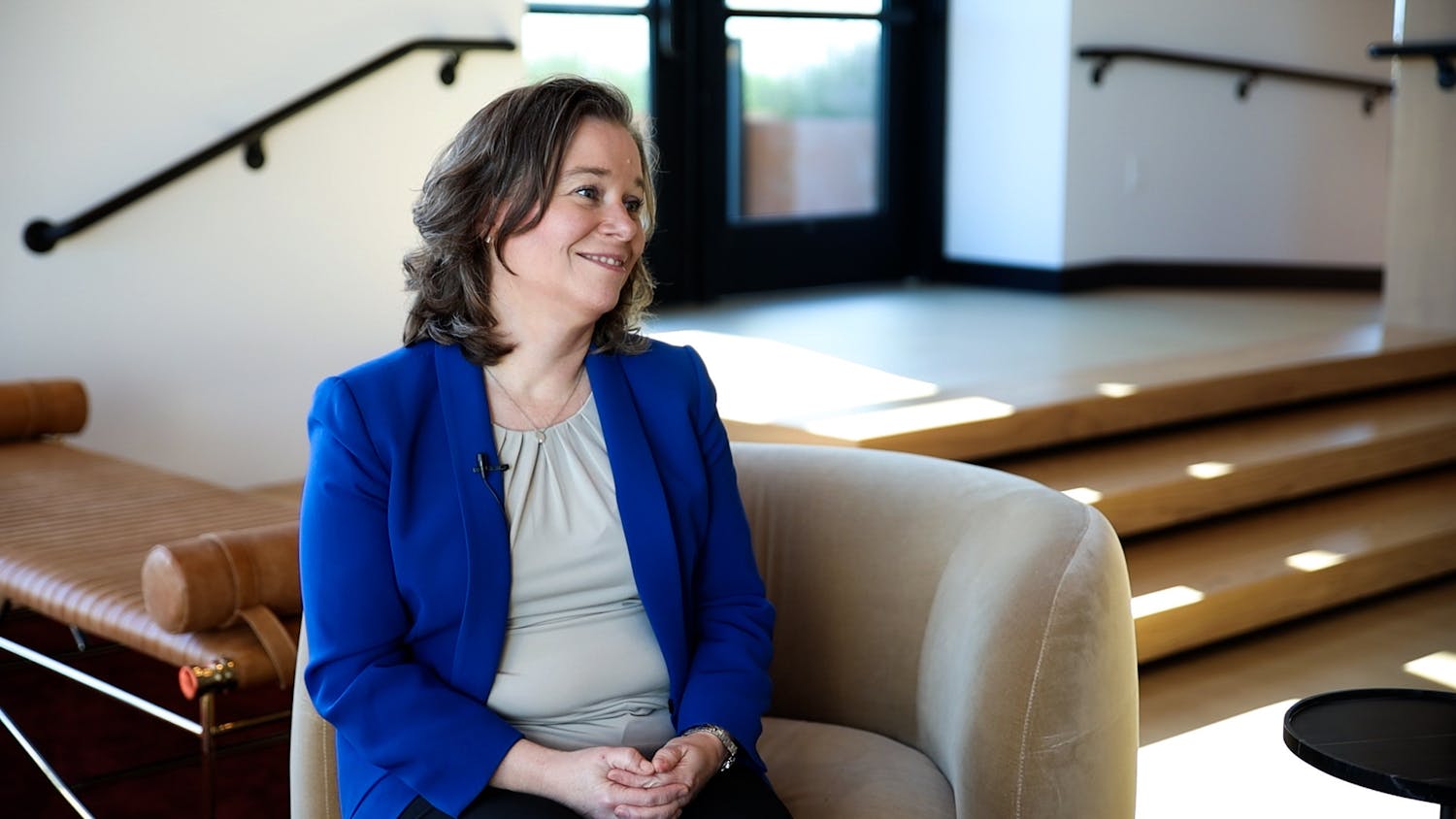Chancellor John Wiley announced Friday his plans to step down in September 2008 as head of UW-Madison after seven years of promoting the university's private funding and building relationships with students.
For a whole variety of reasons, this is a perfect time for the transition - Sept. 1 is the perfect time,"" Wiley said.
He will be 66 years old in March and said his age was one of the many reasons for the announcement.
UW System Board of Regents President Mark Bradley said the UW System will move swiftly in finding a replacement for Wiley. He named former Regent president David Walsh to head the search committee that will provide the final recommendation to the Regents.
""This is going to be an extensive, national search,"" Bradley said. ""We're looking for someone obviously with impressive credentials, but also someone with comparable leadership capabilities to John's.""
""That person will have very big shoes to fill,"" he said.
Bradley praised Wiley's strategic role in working for the benefit of the entire UW System and commended his ""tireless efforts"" in fundraising for UW-Madison.
After being named chancellor in 2000, Wiley told The Daily Cardinal in November of that year, ""We are going to be launching a major fundraising campaign in the next year or two. It's well in excess of a billion dollars.""
Since assuming the role of chancellor in 2001, Wiley's attention to fundraising has stayed in-tune with that mission. During his tenure, he has raised $1 million per day in private funds, totaling about $2 billion.
""I don't know if there could be anybody in the United States that could say that,"" Bradley said.
Wiley said he spent about 25 percent of his time as chancellor contacting external resources for funding, but would devote even more of his time to private funding in the next nine months.
He said he would focus specifically on launching the East Campus Mall, which involves fundraising for the arts and humanities departments.
Wiley said he would not immediately retire and plans to assume a faculty position after stepping down as chancellor.
Communicating with students
In addition to funding, Wiley tried to build relationships with students. Wiley admitted, however, these relationships have been rocky at times.
""Working with students has been one of the best parts of the job,"" Wiley said in an interview. ""Sometimes we've had a little head-butting '¦ but it's always been courteous and pleasant.""
""I would like students to remember me as someone who was a friend of the students and who was accessible to students and always listened respectfully to student ideas - even if we disagreed.""
Gestina Sewell, the Associated Students of Madison chair, said the relationship between Wiley and student government has been a work in progress.
""Of course we've had disagreements, but we've also done a lot of collaborations as well,"" she said, adding he has always been open to dialogue with students about his decisions.
""One of the things that I think is a good thing for chancellors to do is to be able to speak with students and to try to understand where they're coming from - I think that's something that Chancellor Wiley has been doing since I've been around.""
Wiley has taken the most heat from UW-Madison's Student Labor Action Coalition for his role in UW's athletic apparel contract with Adidas and the alleged mistreatment of its factory workers.
The group put Wiley's face on the issue during protests, including carrying a 6 foot cutout of him and delivering a papier mache shoe to his office, telling him to ""boot Adidas.""
Although Wiley sent a university representative to investigate the situation in El Salvador, the group said getting Wiley to take action was challenging.
""In our experience, it's been very difficult to speak directly with the chancellor and usually he's sent his subordinates to deal with us instead,"" Jan Van Tol, a SLAC member said.
Val Tol said the group would be looking for the next chancellor to be someone who is able to rock the boat.
""I think Chancellor Wiley has been interested in maintaining the status quo as much as possible and only when he's been forced to act has he done anything.






